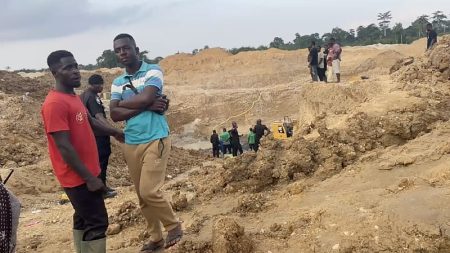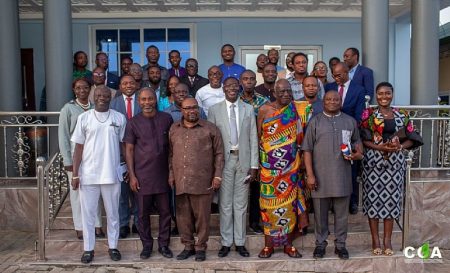The Ghanaian Parliament finds itself embroiled in a contentious debate over the Black Volta gold concession, a dispute centered on the legality of Engineers & Planners’ (E&P) acquisition of the concession from Azumah Resources. The Minority Caucus has raised serious concerns about potential breaches in Ghana’s mineral governance framework, alleging that the deal reeks of corruption and institutional compromise. They argue that the situation could significantly undermine public trust and the legitimacy of the country’s oversight of natural resources, painting a picture of a system vulnerable to manipulation and undue influence. The controversy highlights the fragility of the regulatory framework governing Ghana’s lucrative mining sector and the potential for powerful interests to circumvent established procedures for personal gain.
At the crux of the matter lies a controversial “no-objection” letter purportedly issued by the Minerals Commission, which seemingly granted E&P the right to proceed with the acquisition. The Minority Caucus contends that this letter lacks the requisite ministerial consent, a crucial step in the legal process of transferring mining rights. This perceived procedural irregularity raises questions about the transparency and integrity of the Minerals Commission’s actions, suggesting a possible disregard for established protocols. The lack of clarity surrounding the circumstances under which the letter was issued has fueled suspicions of backroom dealings and preferential treatment, prompting calls for a thorough investigation to determine the validity of the document and the motivations behind its issuance.
Adding another layer of complexity to the situation is the involvement of the ECOWAS Bank for Investment and Development (EBID), which is believed to have provided financial backing for the deal. The Minority Caucus finds it troubling that the bank, with Ghanaian representation on its board, may have proceeded with the financing without thoroughly verifying the legal soundness of the acquisition. This raises concerns about the bank’s due diligence processes and its potential exposure to risks associated with illegal or unethical business practices. The Caucus questions whether the bank’s involvement reflects a broader trend of overlooking legal requirements in pursuit of economic development, potentially setting a dangerous precedent for future investments in the region.
The Minority Caucus has responded forcefully to these developments, demanding a comprehensive briefing from the Minister of Lands and Natural Resources to clarify the government’s position and address the concerns raised. They have made it clear that a satisfactory explanation is crucial to restoring public confidence in the integrity of Ghana’s mineral governance. Should the Minister fail to provide a compelling account of the events surrounding the Black Volta concession transfer, the Caucus has vowed to initiate a full-scale parliamentary inquiry. This underscores their commitment to holding the government accountable for its actions and ensuring that the principles of transparency and due process are upheld in the management of the nation’s natural resources.
This controversy surrounding the Black Volta gold concession has drawn significant attention from various stakeholders beyond Parliament. Civil society organizations, industry observers, and international bodies are closely monitoring the situation, recognizing its potential implications for Ghana’s reputation as a responsible mining jurisdiction. The government’s response will be a critical test of its commitment to transparency and accountability in the extractive sector. The pressure mounts for a swift and decisive resolution that demonstrates a genuine commitment to upholding the rule of law and protecting the interests of the Ghanaian people.
The outcome of this dispute will likely have far-reaching consequences, shaping future investment decisions and influencing the public perception of Ghana’s mining sector. A thorough and impartial investigation is necessary to uncover the truth behind the allegations and determine whether proper procedures were followed. This will not only address the immediate concerns surrounding the Black Volta concession but also send a strong message about Ghana’s commitment to responsible resource management. Failure to address these issues decisively could erode investor confidence and hinder the country’s ability to attract much-needed investment for its continued development.














